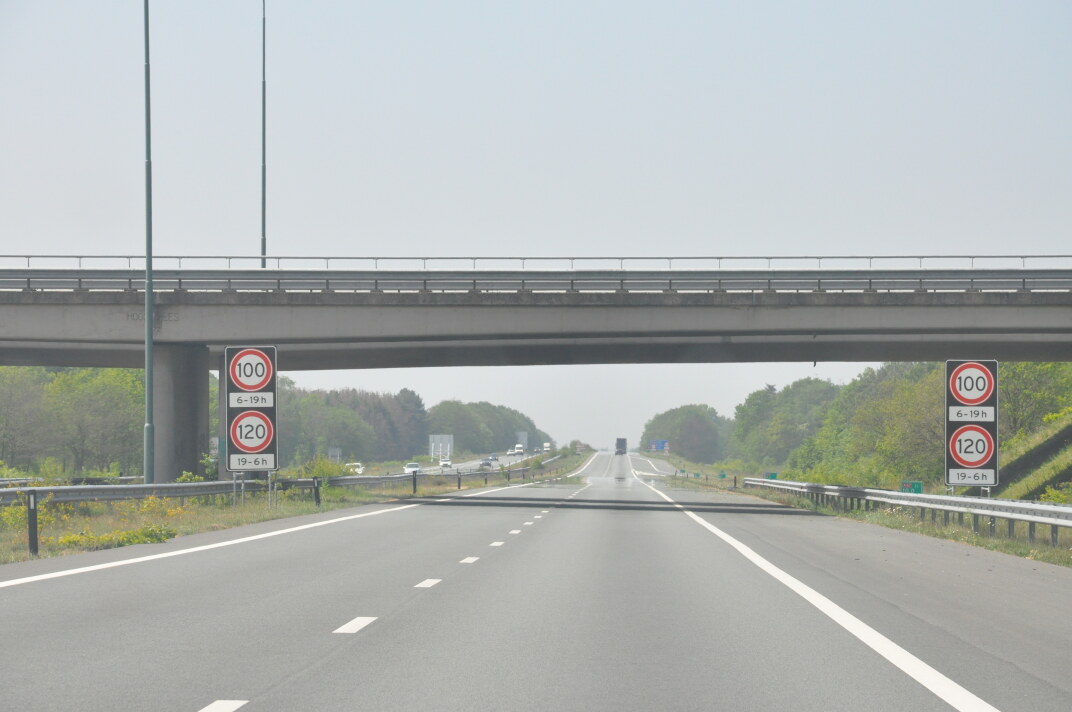Five years after its start, the nitrogen crisis is still in full force
Also back to 1⃣3⃣0⃣..?

On the 29th of May 2019 the highest court of the Netherlands ruled a law to deal with nitrogen emissions as unlawful. This created a crisis across many areas such as infrastructure and agriculture.
As I explained earlier, the nature in the Netherlands is in a bad shape. Things that emit reactive nitrogen molecules, are bad for nature when they are emitted too much. Livestock and burning fossil fuels emit these molecules. These emissions were way to high. The Dutch government came up with a plan, where they would allow more emissions and to offset them later in the future. This was illegal, the court ruled.
But these emissions were still present and a lot of building permits were cancelled as a result.
Of course, measures were taken. Such as the daytime 100 km/h speed limit and the voluntary government sellout of livestock farms. But 5 years later, a lot of farmer's protests, the crisis is far from solved and it feels to me as a very little has happened regarding the crisis.
In 2021 it was ruled that the exclusion of emissions during construction was also unlawful, making building projects even harder. But I did note that use a lot more electric construction vehicles so that they sometimes can still build als electric vehicles don't produce NOx as diesel engines do. Diesel engines produce relatively little NOx emissions compared to say, a farm with 300 cows, but this is enough to go over the threshold of nature which is sometimes in precarious condition.
Furthermore, the housing crisis is far worse than it was five years ago. The four biggest dutch cities are in the European top 10 cities with highest rent.source I also do not live on the rural countryside anymore, I live in student housing in the capital of the Netherlands.
Oh, in the previous article I wrote that a lower speed limit would result in less traffic jams, but this is probably a myth.
Recently, a new government was formed in principle. The biggest party is the far-right PVV, followed by the right-liberal VVD, the who-knows-what NSC, and the agropopulist BBB.
The government announced new plans: highways should have a speed limit of 130 km/h again(like the VVD, CDA, PVV did in 2010). Yep, you read that right, four years after they changed it to 100 km/h during daytime. Also there should be "nature inclusive agriculture", and you can read that "farmers know what is best for nature". Let's not hope they don't mean those who employ industial livestock agriculture.source
Now some opinion: I have zero faith that this government that they will solve this crisis.
It is to me mind boggling that the Netherlands exports 60% of its meat production,CBS from a national standpoint it would be very easy to reduce livestock agriculture, but that the still doesn't happen and looks more unlikely then ever. I also do not understand, who gives a shit about 130 km/h when there are clearly more pressing matters.
Also very funny, the 130 km/h raised speed limit is legally not even possible on any highway currently in a Netherlands due to this crisis.RTL
Worth noting that the Netherlands cannot raise emission limits and screw over nature, these limits are European Union law and cannot be overruled nationally, making this quick "fix" impossible.
Meanwhile the water quality of the Netherlands may be the worst in the entire European Union.CLO Who knows if in a few years a new law crisis emerges from this.
I am looking forward to inform you in five years about the situation.
I hope you're all going to vote for the European Parliament elections this week.
See also the article from 2019: From 130 km/h to 100 km/h: a political taboo breakthrough